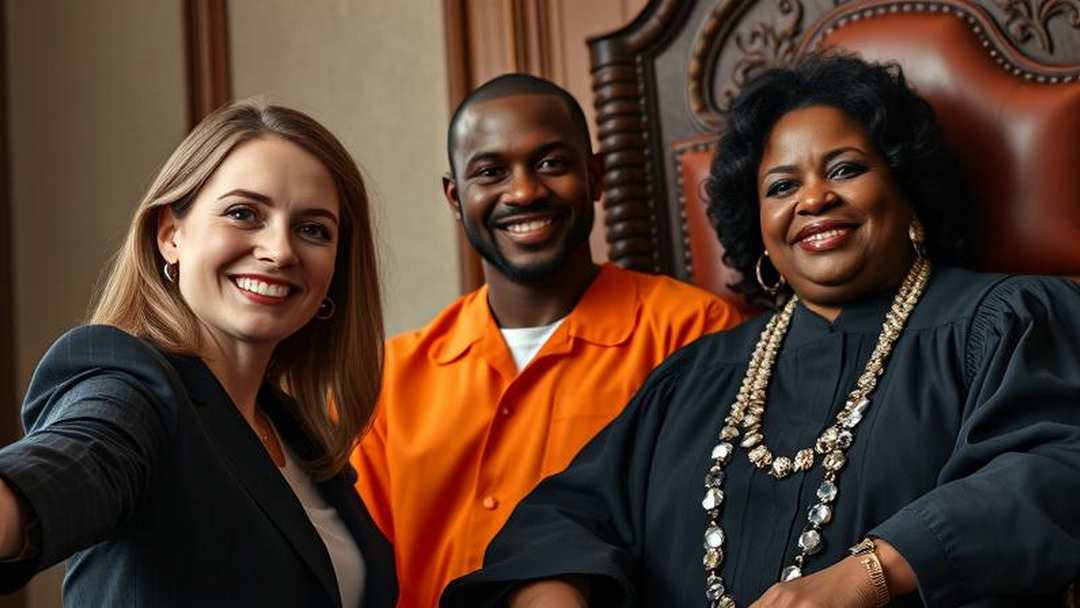Note: This is what they are supposed to do. Whether they give a damn about you and the outcome is up to the individual attorney
What it is supposed to be
In Michigan, public defenders play a vital role in the criminal justice system by providing legal representation to people who cannot afford private attorneys.
They help ensure that everyone, regardless of income, receives a fair trial as guaranteed by the U.S. Constitution.
Public defenders handle cases ranging from misdemeanors to serious felonies and work at different levels based on experience and qualifications.
What Public Defenders Do
Public defenders represent clients in criminal cases at all stages of the legal process, including:
- Arraignments – Advising clients on their rights and entering pleas.
- Pretrial Hearings – Filing motions to suppress evidence, dismiss charges, or seek reduced bail.
- Trials – Presenting evidence, cross-examining witnesses, and making arguments in court.
- Plea Bargaining – Negotiating with prosecutors to reduce charges or sentencing.
- Sentencing – Advocating for fair punishments or alternatives like probation or rehabilitation programs.
- Appeals – Challenging wrongful convictions or excessive sentences in higher courts.
Because public defenders handle many cases at once, they must work quickly and efficiently while giving each client strong representation.
Levels of Public Defenders and Their Qualifications
Public defenders in Michigan progress through different levels based on education, experience, and case complexity.
1. Entry-Level Public Defender (Assistant Public Defender I)
- Education: Must have a Juris Doctor (J.D.) degree from an accredited law school.
- License: Must pass the Michigan Bar Exam and be licensed to practice law in Michigan.
- Experience: No prior courtroom experience required, though internships or clerkships in criminal law are helpful.
- Duties: Handles misdemeanor cases and low-level felonies under supervision.
2. Mid-Level Public Defender (Assistant Public Defender II & III)
- Education: J.D. degree and active Michigan law license.
- Experience: At least 2-5 years of criminal defense or prosecutorial experience.
- Duties: Takes on more serious felony cases, may argue motions in higher courts, and supervises newer attorneys.
3. Senior Public Defender (Assistant Public Defender IV)
- Education: Same as lower levels but with extensive trial experience.
- Experience: 7+ years in criminal defense, often handling serious felonies like murder or sexual assault cases.
- Duties: Represents high-profile clients, trains junior attorneys, and may work on appeals.
4. Chief Public Defender
- Education: J.D. degree and Michigan law license.
- Experience: 10+ years in criminal defense, with leadership and administrative experience.
- Duties: Manages the public defender’s office, oversees budgets, and sets legal strategies for the department.
If you need a defender to fight to the better end you either get lucky and get assigned a public defender that really cares or you hire a private attorney who primary goal is your rights, freedom, family and future.
Are Your Constitutional Rights Threatened?
1 A – 2 A – 4 A or any right
Call Our Office
Komorn Law (248) 357-2550
Other Posts
Sometimes our posts provide a general overview of things with opinionated sarcasm and dry humor by the writer to lighten the same old same old of other law sites. It does not substitute for legal advice. Anyone charged with a criminal offense should consult an attorney for specific legal guidance. BTW. True Fact: When Michael Komorn fights the justice system there is only one focus. You and your rights.
Recent

Client Was Caught With Brass Knuckles – What’s the Law?
Michigan Criminal Laws FAQs Brass KnucklesGetting caught with brass knuckles in Michigan can lead to serious legal trouble. While some states have more lenient laws, Michigan takes a strict stance on these types of weapons. If you or someone you know faces charges...

Resisting an Unlawful Arrest in Michigan
Michigan Criminal Laws FAQs Resisting an Unlawful Arrest in MichiganThe question of whether you can legally resist an unlawful arrest in Michigan is complex, and the answer is generally no, with very limited exceptions. While the idea of defending oneself against an...
More
Resisting an Unlawful Arrest in Michigan
Michigan Criminal Laws FAQs Resisting an Unlawful Arrest in MichiganThe question of whether you can legally resist an unlawful arrest in Michigan is complex, and the answer is generally no, with very limited exceptions. While the idea of defending oneself against an...
Criminal Law FAQs – Assault with Intent to do Great Bodily Harm Less Than Murder (AWIGBH)
Michigan Criminal Laws FAQs Assault with Intent to do Great Bodily Harm Less Than MurderAccording to Michigan State Law (Michigan Compiled Laws - MCL), Assault with Intent to do Great Bodily Harm Less Than Murder (AWIGBH) is a serious felony offense defined in MCL...
Criminal Law FAQs – Operating a Vehicle with a High BAC
Michigan Criminal Laws FAQs Super Drunk (High Breath Alcohol Content)Operating a Vehicle with a High BAC (Super Drunk) - MCL 257.625(1)(c)FAQ 1: What BAC level qualifies as "High BAC" or "Super Drunk" in Michigan? Answer: In Michigan, operating a vehicle with a blood...
Judicial Accountability in Michigan for Judges
Maintaining public trust in the judiciary is paramount to a functioning legal system. In Michigan, several mechanisms exist to ensure judicial accountability, holding judges responsible for their conduct both on and off the bench. These safeguards are primarily...
Criminal Law FAQs – Bench Warrant
Michigan Criminal Laws FAQs Bench WarrantsAccording to Michigan State Law (Michigan Compiled Laws - MCL), a Bench Warrant is a court order that directs law enforcement officers to arrest and bring a specific individual before the court. It's issued by a judge (from...
Criminal Law FAQs – Traffic Offenses
Michigan Criminal Laws FAQs Traffic OffensesAccording to Michigan State Law (Michigan Compiled Laws - MCL), Traffic Offenses encompass a wide range of violations related to the operation of motor vehicles on public roads and highways. These offenses are primarily...


















